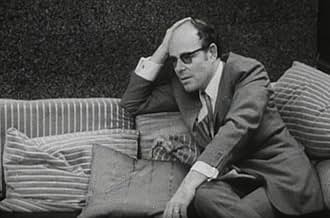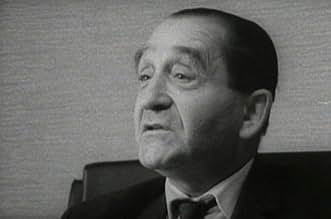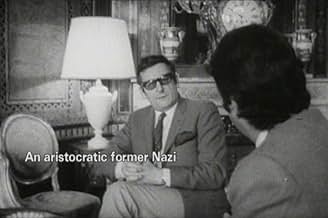Le chagrin et la pitié - chronique d'une ville française sous l'occupation
- 1969
- Tous publics
- 4h 11m
An in-depth exploration of the various reactions by the French people to the Vichy government's acceptance of the German invasion.An in-depth exploration of the various reactions by the French people to the Vichy government's acceptance of the German invasion.An in-depth exploration of the various reactions by the French people to the Vichy government's acceptance of the German invasion.
- Nominated for 1 Oscar
- 6 wins & 2 nominations total
- Self, former Wehrmacht Captain
- (as Helmuth Tausend)
- Self, general in the Wehrmacht
- (archive footage)
- (as General Stummel)
- Self, SS commander
- (archive footage)
- (as Zepp Dietrich)
- Self
- (archive footage)
- Self
- (archive footage)
- self, Former Mayor Of Combronde
- (as Monsieur Leiris)
- Self
- (archive footage)
- Director
- Writers
- All cast & crew
- Production, box office & more at IMDbPro
Featured reviews
The French filmmakers took care to interview French, both in support and opposed to the government of France who collaborated with Germany after their swift defeat, as well as Germans, both Nazi and otherwise and British officials who were involved in the war. With three languages present, the dialogue is spoken over in French, although in the English cut that I viewed, the English was mostly left alone.
It's not a stunning film as a documentary, in terms of presentation, but some of the stories that the film brings out of its sources are quite amazing and document a lot of details that a basic study of the WWII era during a history class might not bring out. Even more notably, the individual stories of those involved at the time highlight much of what's going on while also providing an emotional connection to a person or groups of people and making the situations easier to imagine. I think The Sorrow and the Pity remains a valuable film simply because there aren't many of its kind from its era and for how personal it chooses to be in telling the stories of the men and women that lived during this terrible moment in history. But it's really long and people who don't care about history or about people's stories probably would find much in here to like. 8/10.
Thirty years down the road, Ophüls' methodology is as interesting as the history he tells. Merely claiming that Ophüls had an argument seems to work against the surface of his film, for he disguises his point of view, his argument, behind the reminiscing of his interview subjects. The film is a classic of humanist culture in large part because Ophüls, in giving the people the chance to say their piece, apparently puts his faith in those people (and in the audience that watches them) to impart "truth." However, the filmmaker is much cannier than this; he is not artless. The editing of the various perspectives in the movie allows the viewer to form conclusions of their own that don't always match those of the people who are doing the talking in the film. In fact, The Sorrow and the Pity makes great demands on the viewer, not just because of the film's length: Ophüls assumes you are processing the information he's providing, and so the film gets better as it progresses, with the viewer's attention being rewarded in direct correlation with the effort you put in.
And Ophüls is himself the primary interviewer in the film; you don't often actually see him, but he's there, asking the questions, leading on his subjects and his audience, only partly hidden (visually and philosophically) from view. The movie might look easy; there are none of the showy flourishes of a Kubrick or Stone here (or of Max Ophüls, for that matter). But the viewer is advised to remember that Ophüls' guiding hand is always in the background, constructing the film's version of the truth just as the characters do in their stories.
The documentary selects a few dozen people to interview - virtually all with different roles and attitudes during the Occupation. I found particularly interesting:
the French doctor with "7.5 children" (?) who was concerned primarily with feeding his family throughout the Occupation and was thrilled when hunting began after a two year moratorium,
the champion bicyclist who began against great competition in 1943 because of the number of French riding bicycles due to the absence of gas to run their motorbikes or cars (and who said he didn't see many Germans around Clermont-Ferrand in Vichy France)
the extraordinarily gentlemanly and rather shy-seeming Resistance chief who refused to cooperate with the Communists in his ferocious anti-Nazi work,
the British transvestite singer who became a secret agent for the British in occupied France and broke up with his German soldier lover for fear of compromising him,
Anthony Eden's extraordinary tact and intelligence,
Pierre Mendes-France's wonderful restraint, objectivity, humor and
absence of recrimination,
the German father of the bride at a wedding reception whose attitude toward his (undoubtedly brave) service in the War is wholly uncolored by the fact that the country for which he fought was the aggressor, totalitarian, and vigorously persecutor of groups - (I actually suspect that if one were merely a soldier and had not personally acted dishonorably in the War, this is the attitude that most would have -whether a German or Russian soldier - despite extending one's own horrible system into the rest of Europe).
For one, such as myself, who does believe the Communist Party, especially in those days of Stalin, to have been as great a menace to the world as the Nazi Party, the documentary's failure to ever ask the Communist officials interviewed about their beliefs about substituting one horror for another is disappointing. I could not forget as I watched the interviews of Communists, the 14.5 million recently killed by the Russians in Ukraine as the result of the terror famine imposed on that region - or the Great Terror that killed more millions and concluded just as the War began. In fact, M. Ophuls discomfits the Resistance leader who defied Orders from the Free French in London to cooperate with the Communists against the Nazis - I felt like applauding his behavior!
I'm sure for most, the most fascinating character is M. de la Maziere, the extraordinarily candid, intelligent, disarming and charming aristocrat and former Fascist youth who, at the end of the War, volunteered to serve on the Eastern Front in the German Waffen S.S. - from which only 300 of the 5000 survived. He was quite remarkable to hear - he'd obviously spent a great deal of time thinking about what he had done, why, and although regretful, was unsparing in his description of what he knew and what he had done. However, in interviewing him in a German castle used between the Wars by the Kaiser, and in 1944 for Petain and Laval, the documentary makes it appear as if the castle somehow relates to de la Maziere - as if he owned it - when in fact Ophuls simply took him there for the interview. It's the one dishonest seeming moment in this wonderful documentary.
I strongly recommmend that others see it - you will wonder how you would react, and think about what those in your own country would react to foreign occupation.
Did you know
- TriviaOriginally intended for French television. However, French broadcasters refused to show it arguing the documentary depicted occupied France as exclusively populated by traitors.
- Quotes
Dr. Claude Levy: France is the only government in all Europe whose government collaborated. Others signed an armistice or surrendered, but France was the only country to have collaborated and voted laws which were even more racist than the Nuremberg laws, as the French racist criteria were even more demanding than the German racist criteria. It's not something to be proud of.
- ConnectionsFeatured in Annie Hall (1977)
- SoundtracksÇa Fait d'Excellents Français
Music by Georges Van Parys
Lyrics by Jean Boyer
Performed by Maurice Chevalier
- How long is The Sorrow and the Pity?Powered by Alexa
Details
- Release date
- Countries of origin
- Official site
- Language
- Also known as
- Le chagrin et la pitié
- Filming locations
- Clermont-Ferrand, Puy-de-Dôme, France(Main location)
- Production companies
- See more company credits at IMDbPro
Box office
- Gross US & Canada
- $13,082
- Opening weekend US & Canada
- $5,224
- Feb 26, 2023
- Gross worldwide
- $13,082
- Runtime4 hours 11 minutes
- Color
- Sound mix
Contribute to this page




























